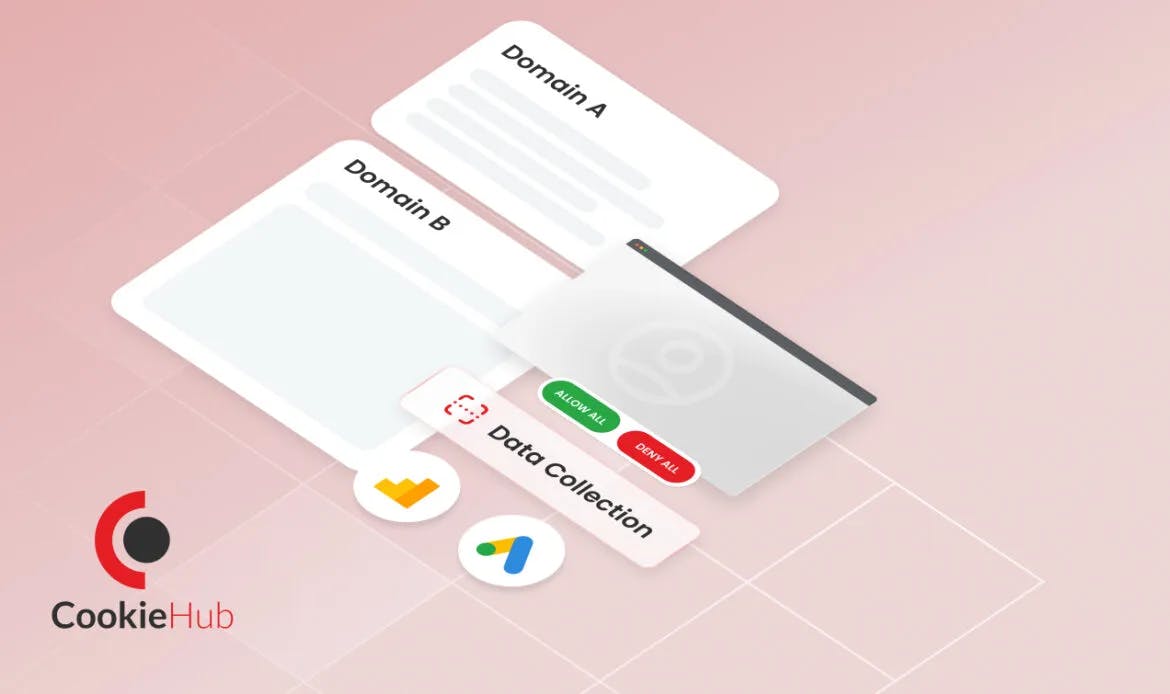
Managing user consent across multiple domains can be a complex task, especially for websites operating under strict privacy regulations like GDPR or CCPA. CookieHub simplifies this challenge with its Cross-Domain Cookies feature, which facilitates the seamless transfer of user consent information across domains.
In this article, we’ll explore what cross-domain cookies are, why they matter, and how CookieHub can make managing them easier. Cookies are small text files that websites store on a user’s device to enhance browsing experiences and gather information about user interactions. They play a pivotal role in web functionality, enabling features like remembering login details, preserving shopping cart contents, and delivering personalized content.
Cross-domain cookies allow user data, such as consent preferences, to be shared between different domains. For example, if a business operates multiple websites, cross-domain cookies can ensure that users who have provided consent on one domain don’t need to re-consent on another. This creates a more streamlined and user-friendly experience.
However, implementing cross-domain cookies comes with challenges, including ensuring compliance with privacy regulations and maintaining transparency with users. That’s where CookieHub’s feature comes in.
The Cross-Domain Cookies feature in CookieHub provides a practical solution for websites using multiple domains. By passing user consent information through query string parameters, this feature ensures that user preferences are respected across all specified domains.
To read more about our cross-domain functionalities, check out the CookieHub Linker feature documentation here.
When enabled, Cross-Domain Cookies pass user consent information as query string parameters whenever a user clicks on a link to a specified domain. The receiving domain reads the consent data, ensuring compliance without requiring the user to consent again.
Imagine you have a primary domain (www.example.com) and a secondary domain (shop.example.com). When a user provides consent on www.example.com and then clicks a link to shop.example.com, the Cross-Domain Cookies feature ensures that their consent preferences are shared via a query string parameter.
Cross-domain cookies are vital for businesses operating multiple web properties. They ensure that:
CookieHub’s Cross-Domain Cookies feature is an essential tool for modern websites managing user consent across multiple domains. By leveraging this feature, businesses can enhance user experience and streamline operations.
With CookieHub’s tools, creating and maintaining a cookie policy has never been easier. Our Cookie Scanner identifies cookies in use on your site, generates a tailored cookie policy, and keeps it updated. Additionally, CookieHub’s customizable Consent Management Platform provides a user-friendly way to manage consent, enhancing both compliance and user experience.
Ready to streamline your cookie compliance? Try out our Cookie Scanner today and create a cookie policy that ensures your website is transparent, user-friendly, and compliant.
CookieHub automatically scans your website to detect cookies, ensuring all cookies are easily managed.